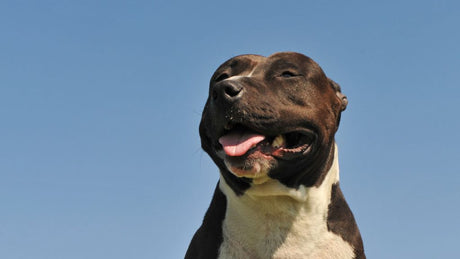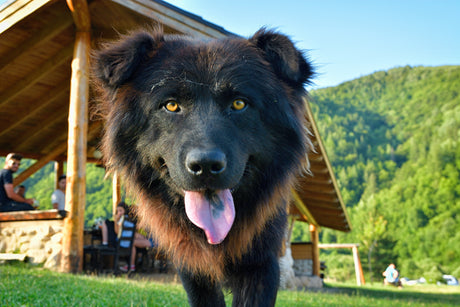A fairly common question in veterinary consultations is the possibility of
giving calcium to dogs . Due to ignorance, it is believed that in any context calcium will always be beneficial for our canine friends, when in reality, not having adequate considerations when providing this supplement can be harmful for different reasons. Since
inadequate calcium supply can affect the health of our dogs , we believe that this issue should be explained in detail. That is why, in this article, we will develop one of the most popular questions for those who are pet lovers: should I give calcium to my puppy?
Calcium in puppies
Calcium is one of the crucial elements that should not and cannot be missing in a puppy's life. Its presence is synonymous with well-being, as it helps prevent diseases and maintain an optimal state of health in our canines. A puppy dog requires around 320 mg per kilo of calcium per day, while in the case of an adult dog, the dose usually decreases to about 120 mg per kilo per day.
It must be taken into account that an important source of calcium is breast milk, but this supply stops reaching the puppy the moment the puppy is separated from the mother. However,
feeding more than it should consume can be harmful to the animal's health instead of contributing to its proper development and growth. While it is true that calcium is associated with the growth and strengthening of bones in puppies. But, we must keep in mind that the excessive supply of this supplement will not make our puppy grow faster or stronger. On the contrary, its abuse can cause serious side effects in the canine's life. There are puppy foods on the market that contain adequate levels of calcium, which can provide what our dog needs, considering aspects such as breed and age. In addition to this, homemade dog diets also offer the necessary supplement. However, these diets must be guided by a veterinarian so as not to exceed calcium consumption. In any case, it is necessary to recognize when a dog needs calcium, this way we can know how to act. A veterinarian will know how to determine if our canine has a calcium deficiency or not.
Lack of calcium in my dog: how to identify it?
Realizing that our dog lacks calcium is a somewhat complex task. In some cases, calcium loss may be gradual and symptoms do not appear immediately, so identifying this problem at first glance is difficult. However, a
lack of calcium in puppies can be perceived through some signs, which we mention below:
Growth
As we have mentioned, calcium directly influences the strengthening of bones and, therefore, the growth of puppies. Therefore, one way to notice that there is a lack of calcium in your body is to notice that your growth is not occurring adequately. If you think this is happening to your puppy, go to a specialist, he will determine if it is due to a lack of this component.
cardiac disorder
Lack of calcium in dogs not only affects their bones, but also their heart. Frequent tachycardia or arrhythmia are usually other symptoms that show the deficiency of this component. Given this, the dog will show apathy or fatigue with certain activities such as running.
Spasms
The presence of muscle spasms or convulsions is another recurrent manifestation in dogs with a lack of calcium.
Hip and diluents
In older dogs, hip dysplasia, and even tooth loss, can give us an idea that there is a calcium deficiency in our canine's body. So pay attention to these demonstrations.
greenish urine
If you see your dog urinating green, it may be because it is eliminating calcium through this route. And if it is complemented by vomiting, lack of appetite and fever, there may be a problem that is causing calcium to not be maintained in the blood.
What to do when there is a lack of calcium
Surely you are already thinking that your dog urgently needs calcium and you are looking for a way to supply it. Not overdoing it is one of the main things to avoid, because more than contributing to the health of our dog, we would be negatively influencing its well-being and growth. The first thing we should do in these cases is go to a veterinarian. He will tell us if our puppy really has the necessary calcium to grow healthy and strong. And, if not, it will give us recommendations to
provide enough calcium appropriately . Food is one of the most influential factors and one of the main sources to provide the calcium required by our little friend. That the food we provide to our puppy is of quality, adjusted to its age and size, is what assures us that it will be receiving the dose it needs.
Bones are another good source of calcium. Letting our dog eat or bite a bone from time to time is not bad. Remember that they cannot be birds! And always be careful with excesses. Your calcium needs will always depend on growth and size. Don't forget to avoid a larger supply than you need, as well as the supplements associated with this component. An excess of calcium and phosphorus in the dog's body will produce an imbalance in its development that would permanently affect its life progress. Consulting with the veterinarian and naturally providing a diet that provides the right proportions of calcium will make our furry companion grow healthy and happy. Other articles of interest:
















